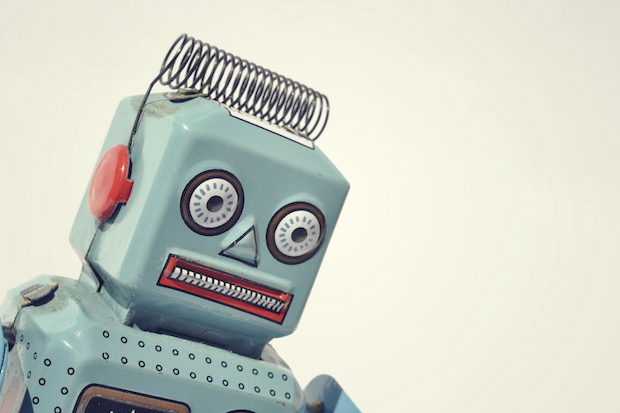Standing on the shoulders of metal and silicon giants


It's often forgotten, but from the time of Shakespeare until roughly the middle of the last century, computers were people.
A 'computer' was someone who could perform the long and cumbersome calculations needed for anything from astronomy to navigation, science and government. Much of this work was tedious in the extreme and after the Second World War, following the development of digital computers, most of it went away, creating the first large-scale case study of digital technology stealing jobs from humans.
Since then, there has been growing unease about the apparently relentless march of automation. As computers and algorithms have become more sophisticated, they have been used to automate ever more jobs that were once performed by humans. Now there is serious debate not only about which jobs will be lost to artificial intelligence, but also about whether any jobs will survive at all.
One prediction suggests that as many as half of jobs could be automated in the next couple of decades: bad news for telemarketers, accountants and real-estate agents (roles unloved perhaps even by those doing them) but good news for dentists, the clergy and editors (phew!).
Still, it's hard not to regard the march of job-eating artificial intelligence as being much like the implacable Terminator of the movies: "It can't be bargained with. It can't be reasoned with. It doesn't feel pity, or remorse, or fear. And it absolutely will not stop, ever."
There's a tendency to see this change as inevitable, and as bad. But it's not necessarily either.
Pros and cons of automation
It is human managers that are deciding to use machines instead of people, mostly because the machines don't get bored, sick, or quit, or expect time off -- or wages. It's important to recognize this is a change that is coming about because of the economic choices we are making -- not Skynet.
It's also important to acknowledge the broad benefits of automation, even if there is great pain for the individuals who lose their jobs. The upside of all this automation should be cheaper, better goods, more efficient services, which we all would welcome (although it begs the question whether, with fewer jobs around, anyone will be able to pay for them).
And it's also not clear that the consequences of the change will all be bad for employment: after all, although successive waves of new technology since the plough have removed the need for some jobs, they have always created more.
In any case, most people complain that they work too much, while few find their job completely satisfying. So perhaps a future with less work may not be the horror that some imagine it to be.
We've defined our lives, and built our cities and our societies, around a particular pattern of work over the last 200 years or so, but there's no reason to assume that commuting to a nine-to-five is the apex of human evolution.
The death of work is decades, perhaps even generations, away depending where you are on the planet. But we should be thinking about how to reconfigure our societies, as this next revolution is likely to throw up huge challenges.
The next revolution
Among these challenges, as more work is done by machines -- both mechanical and digital -- owned by the few, is what do we do to stop society polarising even further? Work has, for better or for worse, been an important element in social cohesion and something will have to take its place. How do we provide meaningful goals for individuals when the focus of work is no longer there?
Consider the consequences of the industrial revolution, both good and bad: the dark satanic mills, the mass urbanization, the rise of democracy. The next, AI-fuelled, revolution will have just as wide-reaching consequences, many of which will be uncomfortable and will create anger and fear. But we have an opportunity to start planning, to mitigate the downsides and accentuate the positives, right now.
That's because the debate about jobs is just one part of a broader debate: as machines become ever smarter, what does that mean for us as humans? As computers prove proficient in areas that were once reserved for Homo sapiens -- winning chess games or composing poetry, for example -- it's leading some to conclude that the list of things that are unique to humans is shrinking and that we are being overtaken by the machines.
I take a different view.
When the first digital machines took the job and the name 'computer' some of the humans put out of work by their digital rivals bounced right back -- becoming the first generation of computer programmers. They weren't diminished by technology, but enhanced. That is the success we need to repeat over and over again.
Automation gives us the chance to stop wasting time on the irrelevant, and to focus on that which makes us more human. To become different and better because of technology. Technology should be seen as a partner rather than a rival. That way, we will be all the more human, able to see further by standing on the shoulders of metal and silicon giants.
Now read this
Inside the panopticon economy: The next internet revolution, privacy and you